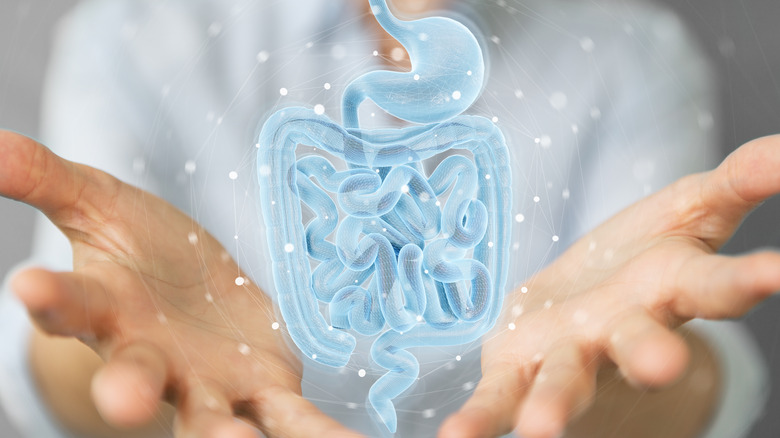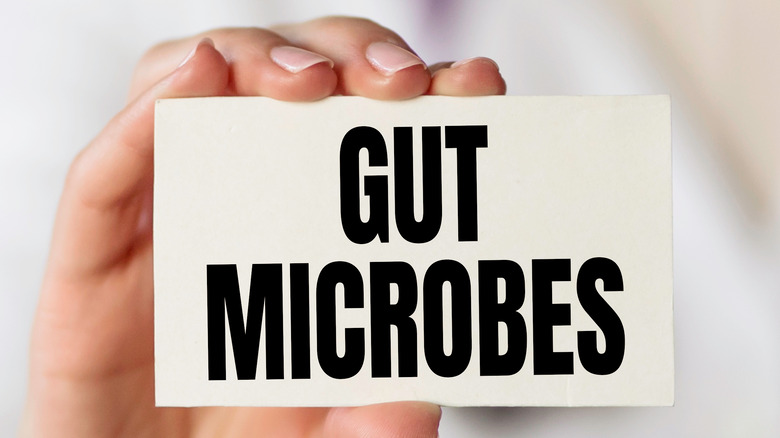The Unexpected Link Between The Gut Microbiome And Stroke Severity
Experts have known for some time that the gut microbiome is connected to many aspects of health. A healthy gastrointestinal system contains trillions of microorganisms that work to aid in digestion and fight harmful bacteria. Too much of the harmful bacteria can cause digestive issues, as well as other health problems. For example, an imbalance could contribute to obesity, depression, and arthritis, according to Everyday Health.
Evidence suggests that gut health is related to all diseases, according to Dr. Raphael Kellman, a physician of integrative and functional medicine and founder of the Kellman Wellness Center in New York City. He tells Everyday Health that heart diseases are no different. Now, new research presented at the 2022 European Stroke Organisation Conference seems to back that up. The study, conducted by researchers at the Stroke Pharmacogenomics and Genetics Laboratory, shows a link between gut bacteria and stroke severity and how well a person recovers from a stroke.
Researchers discovered certain bacteria in stroke patients
Researchers conducted clinical trials, examining fecal samples of 89 patients who suffered an ischemic stroke, along with samples from a control group. They found Fusobacterium and Lactobacillus were associated with the risk of ischemic stroke, and the bacteria Negativibacillus and Lentisphaeria were associated with more severe strokes in the acute phase. In addition, the bacteria Acidaminococcus was linked to poor recovery from a stroke.
Dr. Miquel Lledós, lead author from the Sant Pau Research Institute Stroke Pharmacogenomics and Genetics Laboratory, Barcelona, Spain, told MedicalNewsToday that Acidaminococcus was already linked to a higher risk of stroke. He added that it was known to produce a compound called succinate, which is linked to a higher risk for heart disease. Lledós also said in a press release that while more research is needed, the research suggests that doctors may be able to prevent strokes and improve recovery from them by changing gut bacteria through dietary changes. Fecal transplantation from individuals with more healthy intestinal bacteria may also be beneficial.


